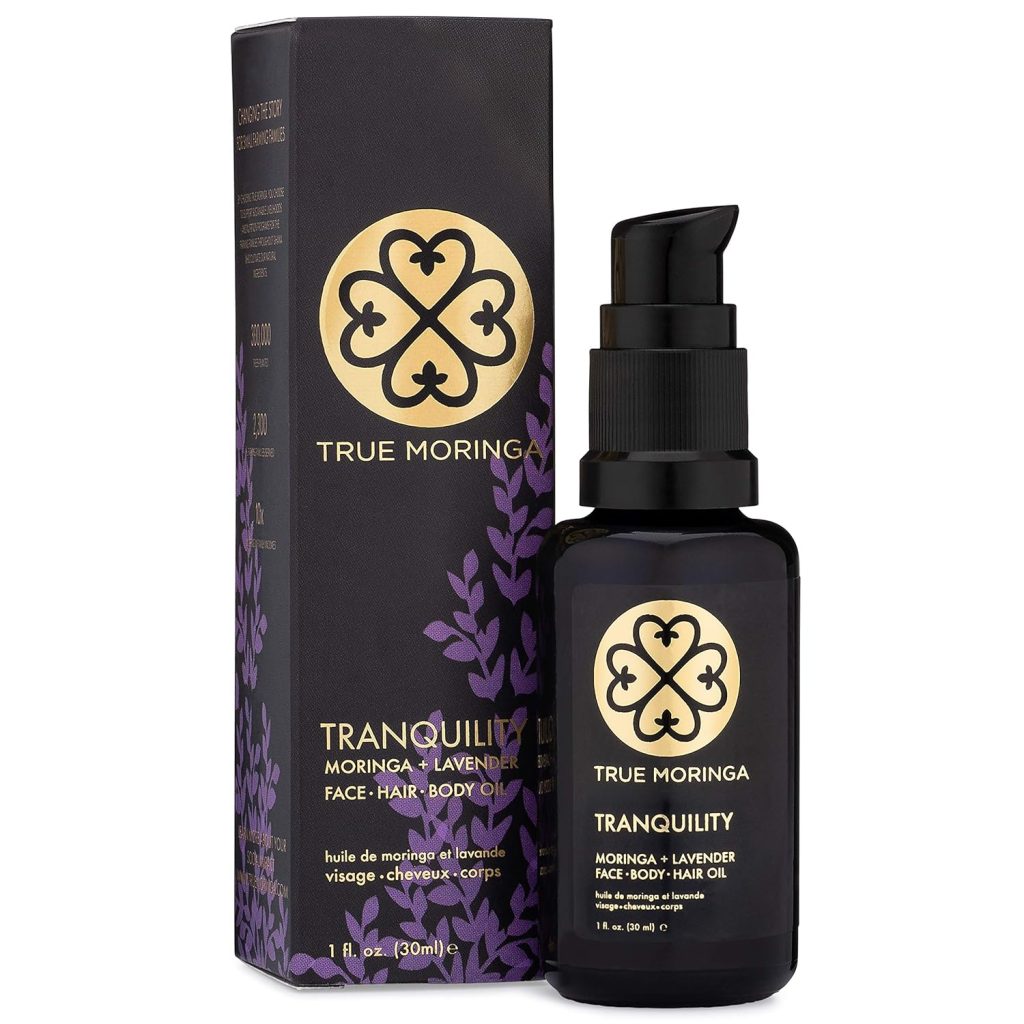If you’ve found yourself searching “Moringa benefits” on Google, chances are you’ve come across numerous claims about the health advantages associated with Moringa Oleifera. From managing diabetes to lowering blood pressure and aiding weight loss, the assertions are varied.
In this detailed exploration, we dissect the scientific evidence behind 21 science-based, incredible benefits of Moringa Oleifera, often referred to as the miracle tree.

1. Moringa Lowers Blood Sugar and Helps Fight Diabetes
According to a 2017 study by the CDC, over 100 million Americans (equivalent to more than 35% of the population) have either diabetes or pre-diabetes. In simpler terms, there’s a 1 in 3 chance that you (yes, you!) either have diabetes or are at a severe risk of developing type 2 diabetes within the next 5 years.
These numbers are concerning, but the silver lining is that researchers have extensively studied how Moringa affects diabetes, and the consistent finding is promising: Moringa has the potential to help combat, and in some cases, even cure certain types of diabetes.
Research indicates that regular consumption of small doses of Moringa on a daily (or even weekly) basis can lead to lower postprandial blood sugar and decreased fasting glucose levels. In a separate study, Moringa demonstrated the ability to completely cure Type 1 and Type 2 diabetes in animal test subjects.
Moringa is rich in antioxidants, particularly flavonoids, which play a key role in keeping blood glucose levels low, thereby contributing to the fight against diabetes. Essentially, incorporating just a gram or two of Moringa powder into your daily meals can be a proactive measure to prevent, reduce, or even potentially cure diabetes.
2. Moringa for Constipation
If you’re an adult, you’ve likely experienced constipation at least once or twice in your life. In fact, according to one study, at least 16% of all adults suffer from chronic constipation, lasting and persistent. In the U.S. alone, we spent $1,304,000,000 in 2017 on over-the-counter laxatives.
Constipation and other digestive issues are significant problems, in other words.
Fortunately, we have a major tool in our constipation-fighting toolkit, and that’s dietary fiber.

3. Does Moringa make you Poop?
Moringa does make you poop. Fiber adds bulk to your stool, increases stool frequency, and helps prevent colon cancer. Researchers have discovered that individuals with diets rich in fiber generally experience lower rates of constipation. Many fruits and vegetables contain dietary fiber, but Moringa stands out.
For comparison, 100 grams of apple contains 2.4 grams of dietary fiber. In contrast, 100 grams of Moringa powder contains 19.2 grams, or 8 times as much. In other words, consuming one tablespoon (14 grams) of Moringa powder daily provides more fiber than eating an entire apple.
4. Why Does Moringa Make You Poop
Moringa is renowned for its high fiber content, promoting bowel movements and alleviating constipation. The seeds are recognized for their natural laxative properties, facilitating digestion and encouraging regular bowel movements. Incorporating this superfood into your diet may contribute to enhanced gastrointestinal health and a regulated bowel movement pattern.
Nevertheless, exercise caution with the seeds, as they are potent laxatives (speaking from experience).
5. Moringa Can Lower Your Cholesterol
Heart disease is the leading cause of death within the United States, even more than cancer, accidents, or strokes. And while heart disease can be caused by a number of factors, one of the largest factors is high cholesterol.
According to the CDC, more than 95 million adults in the US currently have total cholesterol higher than 200 mg/dL. That’s almost 30% of the total population, for the record, which means that nearly 30% of all Americans are at higher-than-normal risk of heart disease.
Diets containing Moringa have been shown to decrease total levels of cholesterol in humans, animals, and even eggs. A large part of this is because of Moringa’s high level of fiber. Not only does fiber help improve your digestive health, but soluble fiber can also reduce how much cholesterol is absorbed into your bloodstream.
Another reason Moringa is so good at reducing cholesterol is that it contains PUFAs: polyunsaturated fatty acids. Don’t let the name intimidate you; PUFAs have the ability to control cholesterol. Moringa seed oil, for the record, can contain up to 72% PUFA. All of this combines to make Moringa excellent at reducing cholesterol.
6. Problems With Insomnia? Moringa Increases Sleepiness
Sleeplessness and insomnia are common conditions that affect many individuals, with one-third of Americans reporting trouble sleeping at least a few times a week, according to SleepScore.

The amino acids present in Moringa play a role in generating the chemicals responsible for inducing sleepiness. So, the next time you find yourself staring at the ceiling, trying to count sheep, consider stirring a bit of Moringa powder into a warm cup of milk.
While it may not guarantee instant sleep, incorporating Moringa into your regular diet can certainly contribute to combating insomnia and supporting a more extended night’s sleep.
7. Moringa Helps Lower Blood Pressure
If you’ve ever had a nurse or doctor express concern about your blood pressure reading, you’re not alone. According to the American Heart Association, more than 100 million Americans currently have high blood pressure.
High blood pressure can damage and narrow your arteries, increasing the risk of stroke. It forces your heart to work faster, which can elevate the risk of heart disease. It can even impact your kidneys, bones, memory, and eyes.
Moringa contains a chemical called niaziminin, which can help decrease arterial blood pressure. In fact, Moringa leaves, in particular, have been found to reduce and regulate high blood pressure.
Managing your blood pressure often requires a number of lifestyle and diet changes, and Moringa can simplify those adjustments.
8. Moringa is a Powerful Antibiotic
In 1928, Alexander Fleming discovered penicillin, the first true antibiotic. In the 90 years since then, its discovery has saved the lives of tens of millions of people.
Antibiotics function to kill or inhibit the growth of bacteria, and if you’ve ever visited the doctor with strep or another type of infection, you’ve probably taken one.
While Moringa has been utilized as an antibiotic for thousands of years, it’s only in the last 70 years or so that we’ve truly begun to study how Moringa’s antibiotic properties work.
Within that time, several studies have demonstrated that Moringa oleifera indeed possesses antibiotic and antimicrobial properties.
Moringa contains a potent antibiotic called pterygospermin, present in Moringa roots, leaves, and seeds.

This antibiotic works to destroy dangerous microbes and bacteria, preventing them from replicating. In fact, one study indicated that the antibiotic properties of Moringa seed extracts were comparable to those of penicillin.
9. Throw Out Your Ibuprofen – Moringa is an Anti-Inflammatory
If you’ve experienced a repetitive stress injury like carpal tunnel or tendonitis, you may have found yourself relying on NSAIDs (non-steroidal anti-inflammatory drugs) such as ibuprofen or aspirin for relief.
However, the drawback of NSAIDs, like many medications, is the potential for side effects. So, how can you combat inflammation without encountering issues like heartburn or headaches?
If your answer is “Moringa,” you’ve likely identified a recurring theme in this article.

Flavonoids, a type of antioxidant abundant in Moringa, offer numerous benefits, including protection against heart disease and cancer.
10. Moringa Can Help Relieve Arthritis Symptoms
According to the Arthritis Foundation, arthritis stands as the leading cause of disability among adults in the United States, with over 54 million people diagnosed by their physicians, and millions more likely suffering undiagnosed.
Given the widespread impact of arthritis, there is a high demand for anything that can alleviate its symptoms, and this is where Moringa proves valuable.
Moringa has been utilized for centuries, if not millennia, to assist in managing arthritis, and scientific evidence is emerging to validate this traditional usage. In one study, researchers employed an extract from Moringa flowers to reduce arthritis in animal subjects. Another study utilized Moringa extract to alleviate joint swelling and pain.
There are even reports of individuals experiencing dramatic, or even complete, decreases in symptoms after incorporating Moringa into their routines.
While there is no singular cure for arthritis, and Moringa won’t entirely heal joint disease, both scientists and real individuals assert that Moringa can certainly provide relief.
11. Moringa Can Reduce Allergies
If you’re anything like me, you likely have Pollen.com bookmarked, and your annual budget includes a substantial amount for Zyrtec and antihistamines. Allergies, affecting hundreds of millions globally, often leave us with the choice of relying on medication or enduring the symptoms.
Recent research suggests that Moringa could provide a helping hand.
While antihistamines are readily available in pharmacies, they also exist in the natural world. Vitamin C, a well-known example, has been shown in a study to reduce histamine levels by 38%. Notably, Moringa, known for its rich Vitamin C content (7 times more than oranges), becomes a noteworthy contender in this regard.
Beyond Vitamin C, Moringa contains Quercetin, a flavonoid known for various benefits, including its potential to address allergies.
While Moringa won’t completely eliminate your allergies, its anti-allergy (and anti-asthma!) properties may ease the impact of allergies, providing a gentler experience.
12. Moringa Allergy Symptoms
Some symptoms of a Moringa allergy include
- Red and watering eyes
- Bloating
- Diarrhea
- Sollen tongue, eyes, or face
- lightheadedness
- Swelling of the throat or mouth
- Difficulty breathing
If you experience any of these after taking your Moringa, you should immediately stop taking Moringa and consult with your doctor.
13. Moringa Can Help Your Wounds Heal Faster
Plants and herbs have played a crucial role in traditional medicine for millennia. In India, Moringa has been a part of this healing tradition, raising the question of how much of its efficacy is rooted in scientific evidence versus folklore. The answer: a substantial amount!
Scientific studies have demonstrated that Moringa leaves contribute to the promotion of fibroblast proliferation, a critical step in the healing process. Simply put, Moringa has the potential to accelerate the closure of skin wounds.
While this is positive news for everyone, it holds particular significance for the elderly and those dealing with chronic illnesses, as their wounds often require a longer healing period. Moringa not only aids in expediting the healing of skin injuries but also serves as a preventive measure against the health issues commonly associated with open wounds.
14. Moringa Helps Decrease Anxiety and Stress
Recall tryptophan and serotonin? They play a broader role than just facilitating sleep induction.
While serotonin is colloquially known as “the happiness drug,” it’s essential to recognize that this label oversimplifies its impact. Serotonin influences various aspects, from memory and learning ability to organ development. Studies, however, suggest its correlation with mood.
Given that tryptophan contributes to serotonin production, foods rich in tryptophan play a role in ensuring the brain generates an adequate amount of serotonin for normal functioning. Consequently, this aids in regulating anxiety and stress, promoting a more constructive approach to managing these aspects of our well-being.
15. Add Moringa to Your Diet to Help With Weight Loss
According to the National Institutes of Health, two-thirds of Americans are either overweight or obese. Each year, we spend 2.1 billion dollars on weight loss supplements, and according to the NIH, most of those supplements have absolutely no effect on weight.
Considering that a significant portion of common weight loss supplement ingredients lacks efficacy, skepticism arises regarding Moringa’s potential for weight loss. However, scientific evidence offers support!
In 2015, researchers from Rutgers University in New Brunswick conducted a study on mice to explore the correlation between Moringa and weight loss, glucose, insulin, and cholesterol. The mice were subjected to a high-fat diet, with one group receiving Moringa and the other not. And what happened?
The mice consuming Moringa did not develop fatty liver disease, showed improved glucose tolerance and insulin signaling, and experienced reduced weight gain compared to the group without Moringa.
This study suggested that the isothiocyanates in Moringa act as anti-obesity agents. Incorporating Moringa into your diet, even within an unhealthy diet, can contribute to preventing and treating obesity and diabetes.
Ultimately, the best way to manage obesity and diabetes is to take care of your lifestyle and diet. But Moringa can serve as a catalyst, assisting your body in combating unhealthy weight gain and diabetes.
16. Struggling to Get Enough Vitamins & Minerals? Moringa has Dozens
Nope! It’s true.
Three different studies found that gram for gram, Moringa leaves contain:
- 10 times more vitamin A than carrots,
- 17 times more calcium than milk,
- 7 times more vitamin C than oranges,
- 9 times the protein found in yogurt,
- 15 times more potassium than found in bananas,
- 25 times the iron found in spinach and 14 times more iron than beef,
- And large amounts of all 9 essential amino acids
A diet rich in vitamins and nutrients is crucial for maintaining proper health. Humans cannot function optimally if we lack essential vitamins. Unfortunately, hundreds of millions of people worldwide fall short of the recommended intake of vitamins and nutrients.
Begin by incorporating just a tablespoon of Moringa powder into your diet. Sprinkle it on your meals, add it to your smoothies, or mix it into your sweets. With virtually no effort, you’ll begin to observe positive changes in your health almost immediately.
17. Moringa is Loaded With Antioxidants
The human body operates like a well-regulated system, with nucleotides binding in a set format and the heart efficiently pumping blood. Most of the time, our bodily functions proceed as intended.
18. Studies Say Moringa Helps Improve Memory in Patients With Dementia
Dementia is undeniably one of the most alarming diseases, and the escalating number of cases adds to the concern. In 2010, approximately 35.6 million people worldwide lived with dementia, a number that surged to over 50 million by 2017.
One of the noteworthy benefits of Moringa, in my opinion, lies not only in its capacity to enhance overall bodily and cardiac health but also in its ability to safeguard our mental well-being.

We’ve talked about Moringa’s positive impact on alleviating stress and anxiety, and it extends further to protecting neurons in the brain.
Researchers have delved into studies examining Moringa’s effects on individuals grappling with dementia, yielding highly promising results. Moringa leaves exhibit neuroprotective properties, aiding in reducing the physical neurodegeneration associated with dementia and enhancing spatial memory. Furthermore, they mitigate oxidative stress, believed by scientists to be the root cause of neurodegeneration.
19. Moringa Contains Anti-Cancer Agents
For years, scientists have emphasized the cancer-fighting benefits of consuming fruits and vegetables. In essence, Moringa aligns with this advice, as statistics indicate that a diet rich in vegetables and fruits correlates with a lower cancer risk.
However, Moringa stands out for its exceptional cancer-fighting potential. In a study, researchers demonstrated that an extract of Moringa leaves could combat tumor cells and prevent cell damage. Another study showcased Moringa’s ability to induce cell death in cancer cells, effectively impeding or halting tumor cell growth. A third study, specifically addressing lung cancer cells, reported analogous results, affirming Moringa’s capacity to slow down and prevent the growth/spread of these cells.
While it’s crucial to note that there is no evidence supporting Moringa as a cure for cancer, a consistent pattern across multiple studies indicates its potential in aiding prevention and decelerating the progression of cancer.
20. Trouble With Hyperthyroidism? Moringa Can Help
Hyperthyroidism, also known as an overactive thyroid, arises when the thyroid glands excessively produce thyroid hormones. In rapid succession, symptoms such as irregular heartbeat, tremors, anxiety, weight loss, and palpitations manifest. Fatigue sets in, accompanied by difficulty falling asleep.
Various factors, from autoimmune diseases to pregnancy, can trigger hyperthyroidism, leading to potential complications like brittle bones, heart issues, and eye problems. So, where does Moringa fit into this picture?
Studies have utilized Moringa extracts to explore their role in regulating thyroid hormones, especially in the context of hyperthyroidism. Notably, an intriguing aspect of one study is that both low and high doses of Moringa (175 mg/kg and 350 mg/kg, respectively) demonstrated similar effects on the thyroid. This suggests that even a small amount of Moringa can potentially assist in managing thyroid hormones, highlighting its potential impact.
21. Moringa Can Increase Hair Growth
If you’ve ever been concerned about the significant amount of hair loss during showers, you’ve likely delved into research on factors influencing hair health and loss.
Two prominent contributors are Zinc and Iron. Iron, crucial for transporting oxygen throughout the body, has long been associated with hair loss in cases of low levels. On the other hand, Zinc plays a role in improving hair growth rates and aiding in the repair of damaged hair follicles.
Now, guess what Moringa contains a lot of?
Moringa stands out for its abundance of vitamins and minerals, particularly noteworthy for its exceptional levels of zinc and iron. Gram-for-gram, it surpasses spinach by 25 times in iron content and beef by 14 times.
22. Suffering from Athlete’s Foot? Moringa is an Antifungal
Here’s something many of us may hesitate to admit: most fungi are actually quite fascinating. Mushrooms, for instance, are a type of fungi.
Blue cheese owes its distinct flavor to fungi, and fungi can serve as bio-pesticides, eliminating harmful pests without harming crops. Fungi are an undeniable aspect of life, and humans have been utilizing and coexisting with them for millennia.
However, when fungi start growing on us, the perception of “cool” can quickly shift to “gross.”
23. Use Moringa for Skin and Facial Care
There are a ton of recipes out there for making Moringa skin and face cleansers, but our favorite is pretty simple:
- 1 teaspoon of Moringa powder
- 1 teaspoon of milk (I use almond milk, but cow milk also works)
- 1/2 teaspoon of honey (another superfood with loads of antioxidants)
Mix all three together into you’ve formed a paste, and then apply it liberally to your face each night.
Let the face mask dry for 20 minutes, before washing off with warm water. Then pat on your favorite facial lotion.
24. If You Have Dry or Tough Nails, Try Moringa Oil for Nail/Cuticle Health
Moringa oil has a lot of impressive uses, and one of our favorites is its remarkable impact on nail health. Working extensively outdoors often leaves my nails in disarray, not to mention the state of my cuticles. Incorporating Moringa oil into my routine, soaking my nails a few times each week, has truly transformed the appearance and texture of my nails.
For an effective nail care routine, take a teaspoon of Moringa oil before bedtime. Gently massage it into your nails and cuticles, leaving it on overnight without washing it off! Then in the morning, rinse it off with warm soap and water.

For years now, Moringa has been a daily consumption in my life, incorporated in various forms such as capsules, food recipes, and soothing teas. Initially, my daughter and I embarked on this journey as an experiment, but as time went on, I delved deeper into its remarkable potential and unearthed the unlimited benefits it offers for our well-being and health. I got motivated by how much it positively impacted me and decided to share my insights about Moringa’s profound impact on health and overall living through my blog posts.


